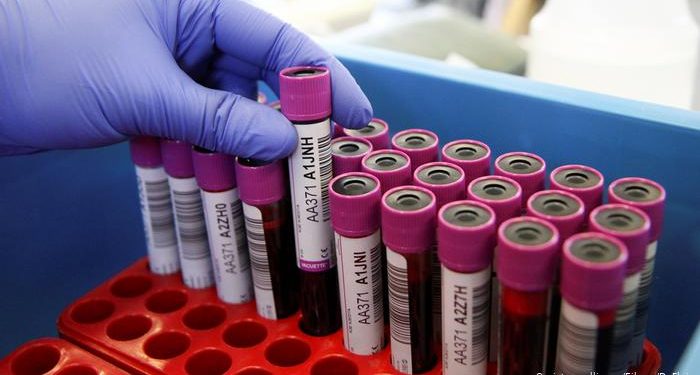In the United States, there are more than 13.2 million trusted Source blood givers. Universally, individuals give in excess of 100 million trusted Source units of blood every year.
It is simply conceivable to store blood for a restricted time frame, so reassuring the normal gift of blood is critical. As the World Health Organization (WHO)Trusted Source clarifies:
“A choice to give your blood can save a day to day existence, or even a few if your blood is isolated into its parts — red cells, platelets, and plasma — which can be utilized exclusively for patients with explicit conditions.”
1. Giving blood can make you wiped out
Any individual who is solid prior to giving blood won’t turn out to be less sound thereafter. Despite the fact that specialists suggest that individuals rest for a day and drink liquids in the wake of giving, the soundness of these people isn’t in peril.
Inside an expected 48 hours of giving, a singular’s blood volume gets back to business as usual — overwhelmingly through an increment in plasma. Inside 4 to two months, the body will supplant all of the lost red platelets.
MNT talked with Dr. Emanuel T. Ferro, Ph.D., a pathologist at MemorialCare Orange Coast Medical Center in Fountain Valley, CA, and head of the Blood Bank, Donor Center, and Transfusion Medicine at MemorialCare Long Beach Medical Center in Long Beach, CA. He told us:
However, the facts confirm that there may be some incidental effects. Dr. John Raimo, the seat of medication at Long Island Jewish Forest Hills in Queens, NY, told MNT:
“It is feasible to feel drained or bleary-eyed a short time later. These indications will disappear all alone, yet you might need to drink some water and have a little tidbit to help. You may likewise feel sore or have an injury on your arm.”
Dr. Kenny let MNT know that “more youthful individuals and the people who are of low body weight” are bound to feel tipsy, however, that “can typically be forestalled by drinking the liquid before the gift.”
2. More established grown-ups can’t give blood
This isn’t correct. In the U.S., individuals who are more established than 16 years and weigh more than 110 pounds (50 kilograms) can give blood.
It is important, nonetheless, that the standards contrast in certain nations. For example, in the United Kingdom, givers should be matured 17–66 years. Be that as it may, individuals who have given blood before can keep on giving blood until the age of 70.
Any individual who is more established than 70, however, has given blood in the past 2 years is likewise still qualified to give.
3. In case somebody is taking medicine, they can’t give
This is a fractional fantasy. People taking specific drugs, including anticoagulants, antiplatelet prescriptions, and some skin inflammation medicines, ought not to give blood.
Nonetheless, much of the time, drugs don’t imply that somebody can’t give blood.
Prior to giving, an individual ought to talk with a clinical expert to check whether their present prescriptions influence their qualification to be a giver. Similarly as significantly, if a specialist has endorsed a prescription, individuals ought not to quit taking it to give blood.
4. Giving blood is tedious
In spite of the fact that enlistment and preparing can take changing measures of time, the technique of giving blood just requires around 8–10 minutes. The American Red Cross clarifies that the “whole cycle requires around 1 hour and 15 minutes.”
5. You may get a contamination in the event that I give blood
Dr. Ferro disclosed to MNT why there is no danger of getting a contamination when giving blood:
“We utilize a sterile procedure to set up your arm before we place the needle to draw your blood. Diseases at the ‘draw’ site are practically incredible. All of the needles we use are new, sterile, and just utilized once, so there is zero chance of getting a bloodborne disease from giving blood.”
6. On the off chance that I get a bonding, I may get a disease
Albeit not rigorously identified with blood gift, another normal legend is that there is a high danger of disease when somebody gets a blood bonding. As Dr. Kenny disclosed to MNT:
“Individuals can get a contamination from a blood bonding if the blood is tainted. [However,] this is extremely uncommon on the grounds that the blood is thoroughly evaluated for various infections and microbes. For example, it is assessed the shot at contracting hepatitis C from a blood bonding is around 1 of every 100 million.”
7. Giving blood is difficult
Once more, this is an incomplete fantasy, as there is some aggravation as the needle goes in, yet it is generally gentle and fleeting. When the needle is in position, the contributor ought to stay agreeable all through.
Following a blood gift, there might be some aggravation at the site of the needle’s entrance. Certain individuals experience swelling, however, this is typically harmlessTrusted Source and vanishes surprisingly fast.
8. You can just give blood once every year
This isn’t correct. When platelets have renewed, which requires as long as about two months, it is protected to give blood once more. Because of this, the American Red Cross prompts that individuals can give entire blood like clockwork.
9. Individuals who have tattoos or piercings can’t give
This is a long-standing fantasy, however, it is as yet a legend. The American Red Cross says to “[w]ait 3 months after a tattoo if the tattoo was applied in an express that doesn’t control tattoo offices.”
Likewise, it clarifies that giving blood after a piercing is “[a]cceptable as long as the instruments utilized were single-use gear and expendable (which implies both the firearm and the stud tape were dispensable).” However, it asks potential contributors to stand by “90 days if a piercing was performed utilizing a reusable weapon or any reusable instrument.”
10. You can’t give in the event that you have hypertension
This isn’t in every case valid. However long somebody has systolic circulatory strain lower than 180 millimeters of mercury (mm Hg) and diastolic pulse lower than 100 mm Hg, they can give blood.
Albeit certain meds imply that it is absurd to expect to give blood, drugs for hypertension don’t make somebody ineligible to be a giver.
11. You can’t give on the off chance that you have elevated cholesterol
This is false — neither high blood cholesterol levels nor cholesterol-bringing down drugs preclude somebody from giving blood.
12. Veggie lovers and vegetarians can never give blood
This is another fantasy. As Dr. Ferro disclosed to MNT, these people “can [donate] as long as they meet all of the wellbeing screening necessities to give blood. A few veggie lovers/vegetarians don’t ingest satisfactory iron and might be fringe pale. Notwithstanding, we screen every contributor for sickliness, and potential benefactors [with this condition] are not permitted to give.”
13. Enough individuals as of now give blood
Unfortunately, this isn’t correct. As blood has a restricted time span of usability, keeping up with sufficient supplies is a continuous test. As Dr. Raimo disclosed to MNT: “Gave red platelets should be utilized inside 42 days. Given platelets should be utilized within 5 days. Along these lines, gave blood should be renewed continually, and we are continually searching for additional volunteers to give.”























































Discussion about this post